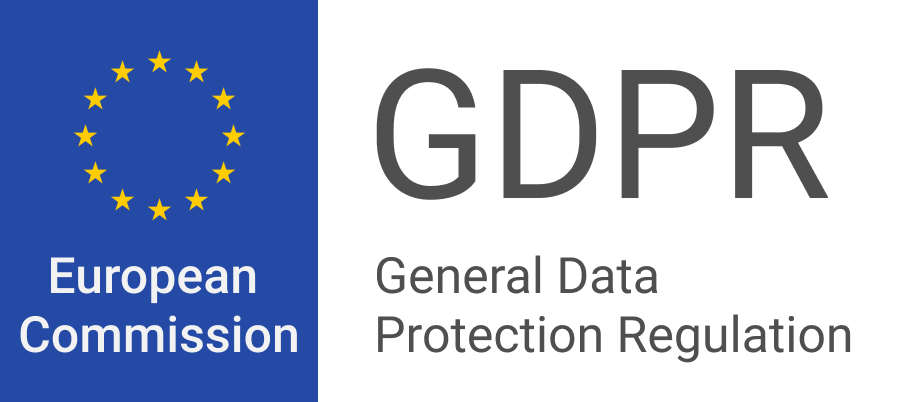If you’re a business owner, manager, or administrative staff member in the Field Services industry, or if you’re a freelancer, consultant, or small business owner offering services to clients, this article is specifically designed for you.
We’ll be discussing the importance of service invoicing, essential invoice information, listing services provided, professional design and format, record keeping, and prompt invoicing and follow-ups.
By understanding and implementing these effective Service Invoicing practices, you can improve your financial management, client communication, and overall Field Services Business success.
Importance of service invoicing
Service invoicing is very important for companies that offer services to their customers. It’s good for the business in many ways, like:
- Invoicing is how businesses ask customers to pay for the services they’ve provided. This helps the company earn money and keep its finances in good shape.
- When a business makes a good invoice statement, it shows that it is organised and takes its work seriously. This helps strengthen the client’s confidence in the company and makes the business look good.
- Invoices are formal proof because they show what was agreed upon in a business deal. They can be used in court if there is a dispute or during an audit of the business’s taxes. This helps protect the business.
- Invoices help businesses keep track of which clients have paid and which ones haven’t. This allows them to take better care of their money and make smart choices about it.
- For filing taxes, invoices are important because they show how much money a business has made. Companies can pay their taxes on time and stay out of trouble with the government if they send out correct invoices.
- When figuring out how well a business is doing, invoices can help by showing how much money each service or project brings in. This allows companies to figure out how they can get better and grow.
- Invoices are a way for companies to talk to their customers. A clear statement lets both parties know what services were done, how much they cost, and when the payment is due. This makes it less likely that something will go wrong.
In short, service billing is a key part of a successful business that offers services to customers. It helps the business make money, look professional, stay legal, keep track of payments, report taxes, evaluate success, and clearly communicate with clients.
Essential Invoice Information
Creating an invoice for a field services management (FSM) business is important to keep track of payments. Here’s what to include in the invoice:
Business details
- Your company’s name: Write the name of your FSM business.
- Contact info: Add your address, phone number, and email address.
- Logo: If you have one, put your business logo on the invoice.
Client details
- Client’s name: Write the name of the person or company you did the work for.
- Contact info: Add the client’s address, phone number, and email address.
Unique invoice number and date
- Invoice number: Give each invoice a different number so you can find it easily later.
- Invoice date: Write the date you made the invoice. This helps you know when the payment is due.
Payment Terms
- Due date: Tell the client when they need to pay you (like “in 30 days” or on a specific date).
- Late fees: If you charge extra for late payments, let the client know.
Listing Services Provided
By including this information in your FSM invoice, both you and your client will have a clear understanding of the work you did and when the payment is due. This will help your business look professional and make it easier to keep track of your money.
When creating an invoice for a FSM business, it’s important to clearly list the services provided. This helps your client understand what they are being billed for and ensures accurate payment. Here’s a breakdown of how to list services for an FSM invoice :
Descriptions of services
- Explain each service: Write a short description of each service you provided. For example, “cleaned office space” or “repaired air conditioning unit.”
Date and relevant details
- Service date: Add the date when you did the work. This helps the client remember what was done and when.
- Important information: Include any extra details that help explain the service, like the location of the work or specific equipment used.
Quantity or hours worked
- How much work: Write down how many hours you worked or how many items you fixed or cleaned. For example, “4 hours spent cleaning 3 windows.”
Rate per hour or unit
- Cost of work: Write down how much you charge per hour or per item. For example, “$25 per hour” or “$10 per window.”
- Calculate the total: Multiply the rate by the quantity or hours worked for each service. This gives you the total cost for each service.
By clearly listing the services provided in your FSM invoice, your client will know exactly what they are paying for. This will help you get paid correctly and make your business look professional.
Other Information for Invoicing
Tax Considerations
- Sales tax or VAT: Businesses must consider the applicable sales or value-added tax (VAT) when selling goods or services. These taxes vary depending on the transaction’s location, industry, and nature. Therefore, ensure you know the tax rates that apply to your business and include them in your pricing structure.
- Inclusion in invoice total: To ensure transparency and ease of understanding for your clients, make sure to include sales tax or VAT as a separate line item on your invoices. This way, clients can see the breakdown of charges and understand the total amount due. Make sure the invoice total accurately reflects the sum of all charges, including applicable taxes.
Payment Terms and Methods
- Clear payment terms: Establish and communicate clear payment terms with your clients, including specific due dates, grace periods, and any discounts for early payment. This helps to minimise confusion and potential disputes while fostering a smooth payment process.
- Late fees or penalties: Consider implementing late fees or penalties for overdue payments to encourage timely payment. Clearly outline these fees in your payment terms and include them on your invoices. Make sure clients are aware of potential late fees before they commit to working with you.
- Accepted payment methods: Offer a variety of payment methods to accommodate your clients’ preferences, such as credit cards, wire transfers, PayPal, or online payment platforms. Specify accepted payment methods in your payment terms and on your invoices.
- Necessary payment details: Include all necessary payment details on your invoices, such as your bank account information or payment platform details, to simplify the payment process for your clients. In addition, providing this information reduces the likelihood of payment delays or errors.
Personalised Notes
- Thank you notes: Including personalised thank-you notes on your invoices or in separate communications can help strengthen your relationships with clients. Expressing gratitude for their business demonstrates appreciation and can encourage repeat customers or positive referrals.
- Appointment reminders: If your business relies on scheduled appointments, consider incorporating appointment reminders in your invoices or through separate communications. This helps clients remember upcoming commitments and can reduce the likelihood of no-shows or last-minute cancellations.
Invoice Design
Invoices for any business, including the FSM field, work best when professionally designed and laid out. A well-designed statement looks professional and makes sure the information is clear and easy for clients to understand
Record Keeping
Keeping good records for a business like a FSM company is very important. Accurate records help you keep track of your money, stay out of trouble with the law, and get along well with your clients.
Why it’s important to keep good records
- They help you see how your business is doing financially so you can make intelligent decisions and handle your money better.
- Keeping good records makes sure you keep the law intact. You need the proper paperwork for taxes in case you get audited.
- Clear records help avoid client fights because you have proof of your work and the money they owe.
Keeping track of payments and past clients
- By keeping track of the money you’ve received, you can identify any clients who still owe you money. Then, you can remind them to make their payments and ensure you receive enough money.
- You can tell if a client is dependable by how they pay their bills over time. This can help you decide if you want to continue working with them or if you want to change the way you get paid.
- By reviewing your clients’ past records, you can give them the services they need and make them happy, leading to a better, longer-lasting relationship.
Prompt Invoicing and Follow-ups

Timely Invoicing and follow-ups mean sending bills quickly and checking on payments to ensure you get paid on time. Here are some easy ways to understand each part:
- Sending bills to clients right after you finish the work helps you get paid faster, keeps your clients happy, and makes sure your business has enough money to run smoothly.
- Keeping track of unpaid bills and reminding clients to pay when they’re late helps you get the money that is due and keeps your business financially stable. Friendly notes show that you’re a professional and encourage clients to pay up.
- Having a plan for how to deal with late payments helps you handle unpaid bills moderately and regularly. You could charge extra for late fees, set up payment plans, or hire a collection firm as part of your plan. This process saves your business and ensures you take care of bills that must be paid correctly.
To sum up, invoicing is essential for your Field Services Business. By focusing on the ideas we discussed in this article, you can handle your money better, communicate well with clients, and improve your business.
To make your invoicing even easier, consider using i4t Business Field Service Management Software, to Fasttrack your invoicing needs.
Take the chance to improve your invoicing and make your business grow. Book a demo today if you want to learn more about i4t Business and how it can help your Field Services Business. Our friendly team will happily show you all the cool features and benefits made just for you.
FAQs
Service invoicing is the process of creating and sending bills to clients for the services provided in the Field Services Business. These invoices detail the work completed, the charges, and the payment terms, ensuring both parties are aware of the agreed-upon financial aspects of their business relationship.
Service invoicing is crucial for maintaining accurate financial records, ensuring timely payments, fostering clear communication with clients, and promoting a professional image. It also helps businesses track their revenue, assess their performance, and comply with tax regulations.
Consider using invoicing software or templates specifically designed for the Field Services industry. These tools often come with professional designs and customizable options that make it easy to create clear, organised, and visually appealing invoices.
Key information to include in an invoice consists of business and client details, a unique invoice number, invoice date, payment due date, a list of services provided with descriptions, dates, quantities or hours worked, and rates. Additionally, the invoice should include tax considerations, payment terms, and accepted payment methods.
Maintaining accurate records is crucial for managing your business finances. Utilise an invoicing system or software that allows you to track sent invoices, due dates, and payments received. Regularly review these records to identify overdue payments and follow up with clients as necessary.
FSM software like i4t Business Solutions can automate and streamline invoicing processes by generating professional invoices, tracking payments, managing client information, and offering insights into business performance. This software can save time, reduce errors, and improve overall financial management for your Field Services Business.
Hot off the press!

With our cutting-edge technology and in-depth knowledge of how the Field Service Management sector operates, the i4TGlobal Team loves to share industry insights to help streamline your business processes and generate new leads. We are driven by innovation and are passionate about delivering solutions that are transparent, compliant, efficient and safe for all stakeholders and across all touch points.
Recent articles that may interest you as well..









